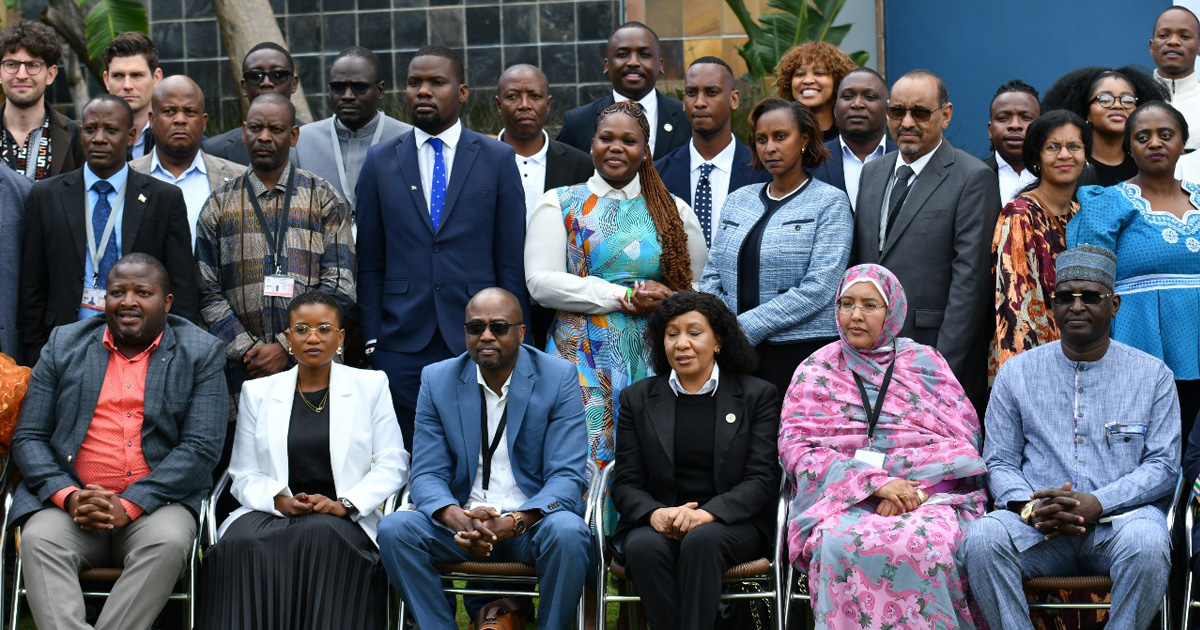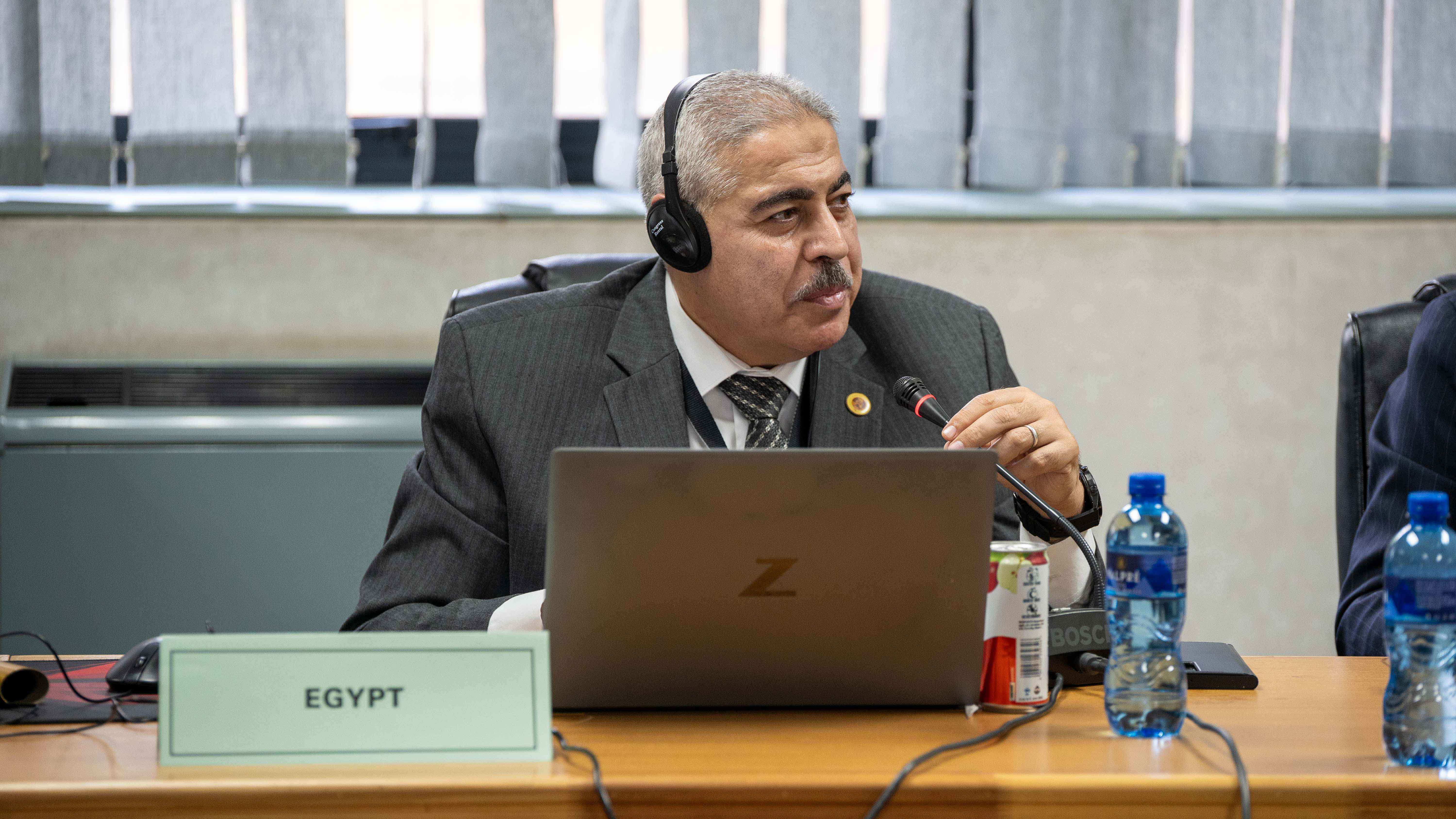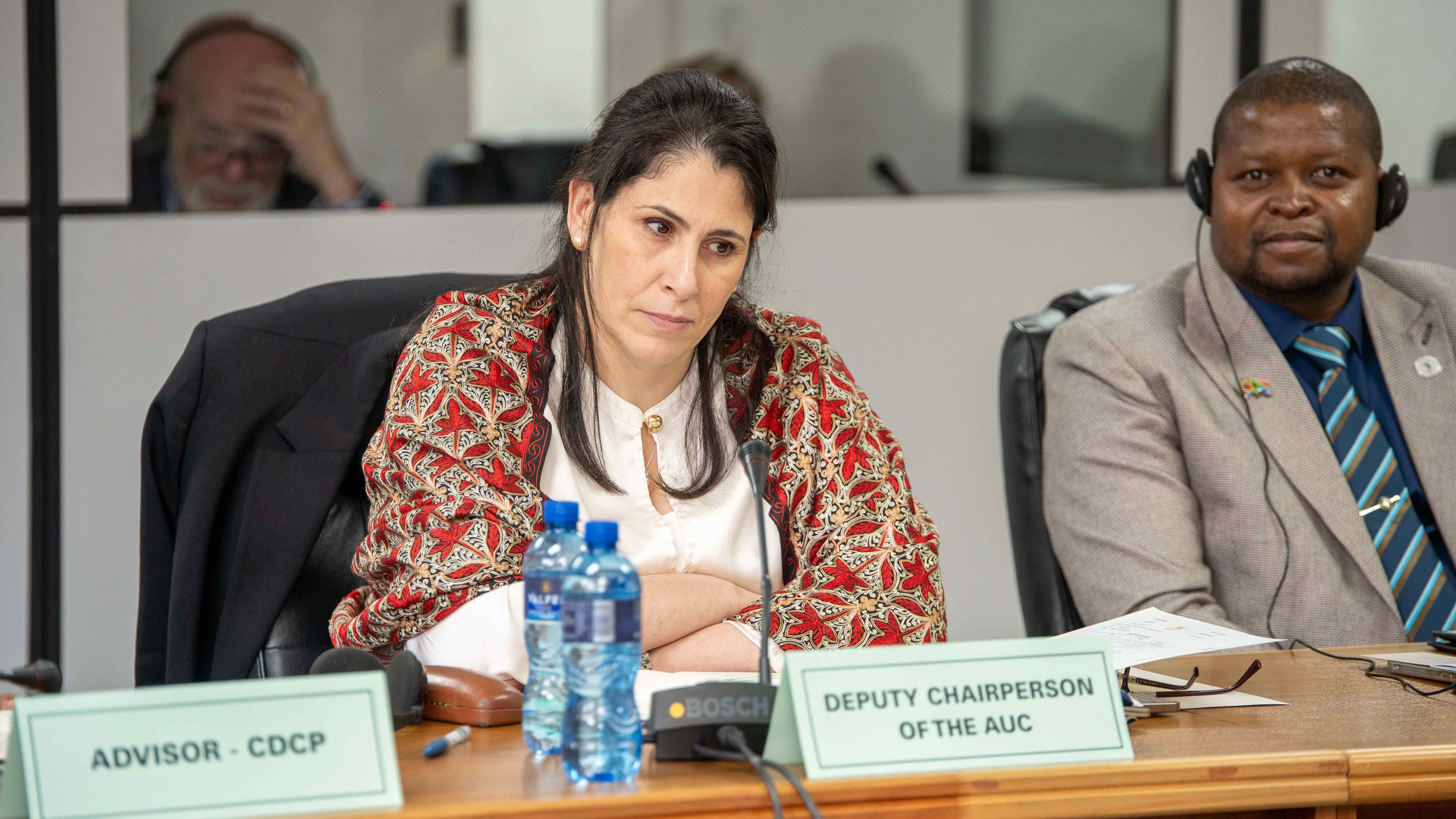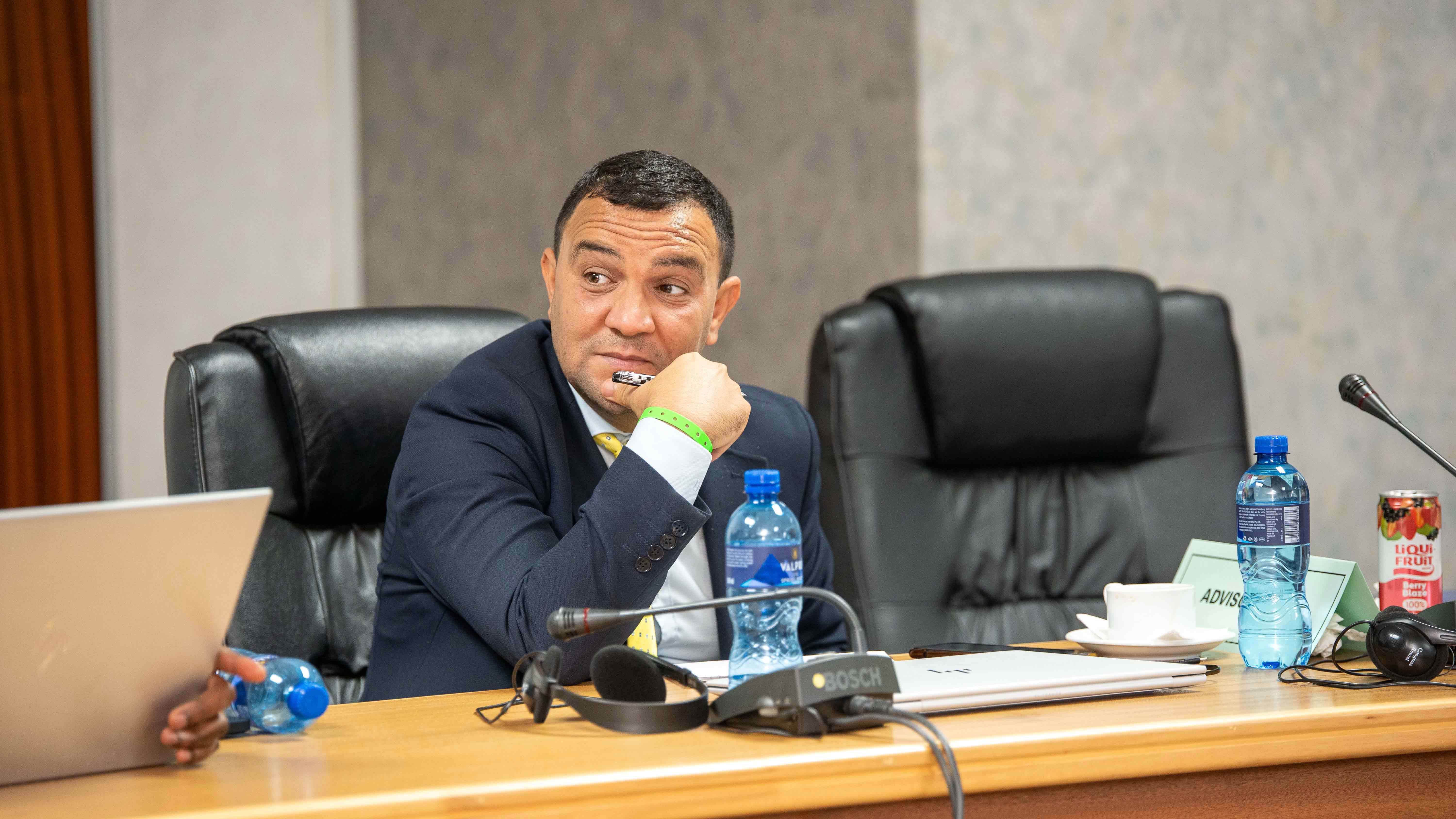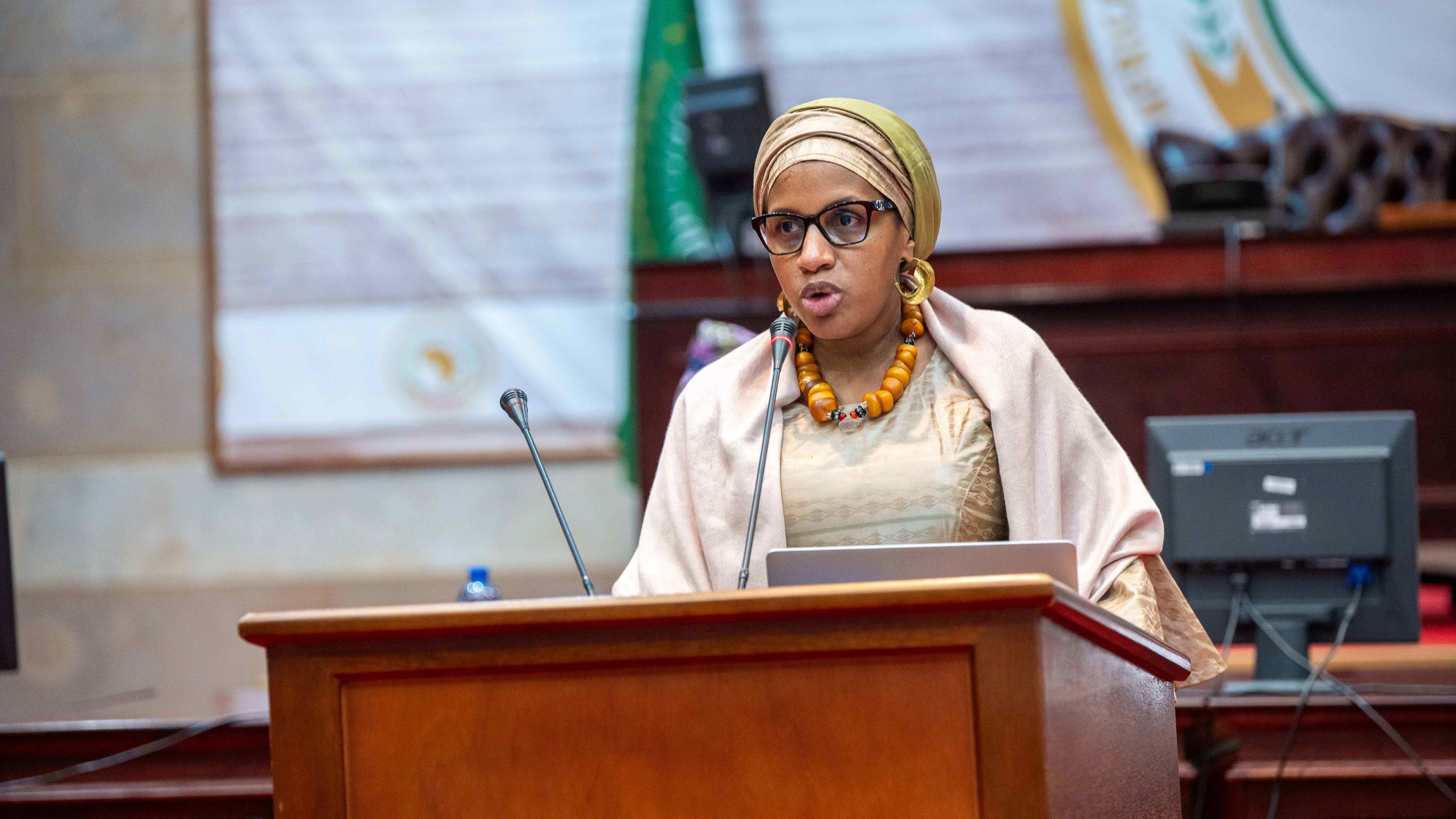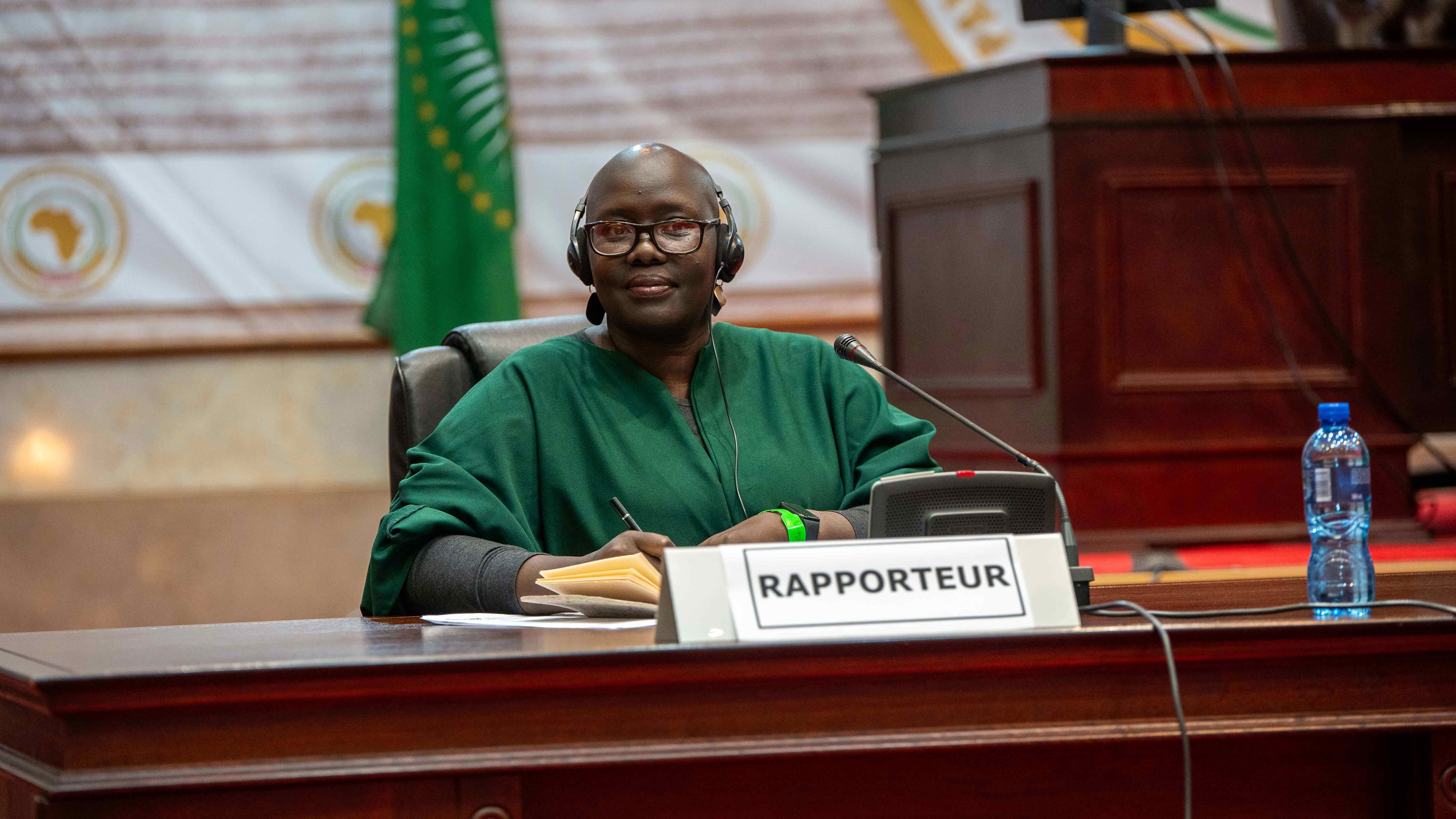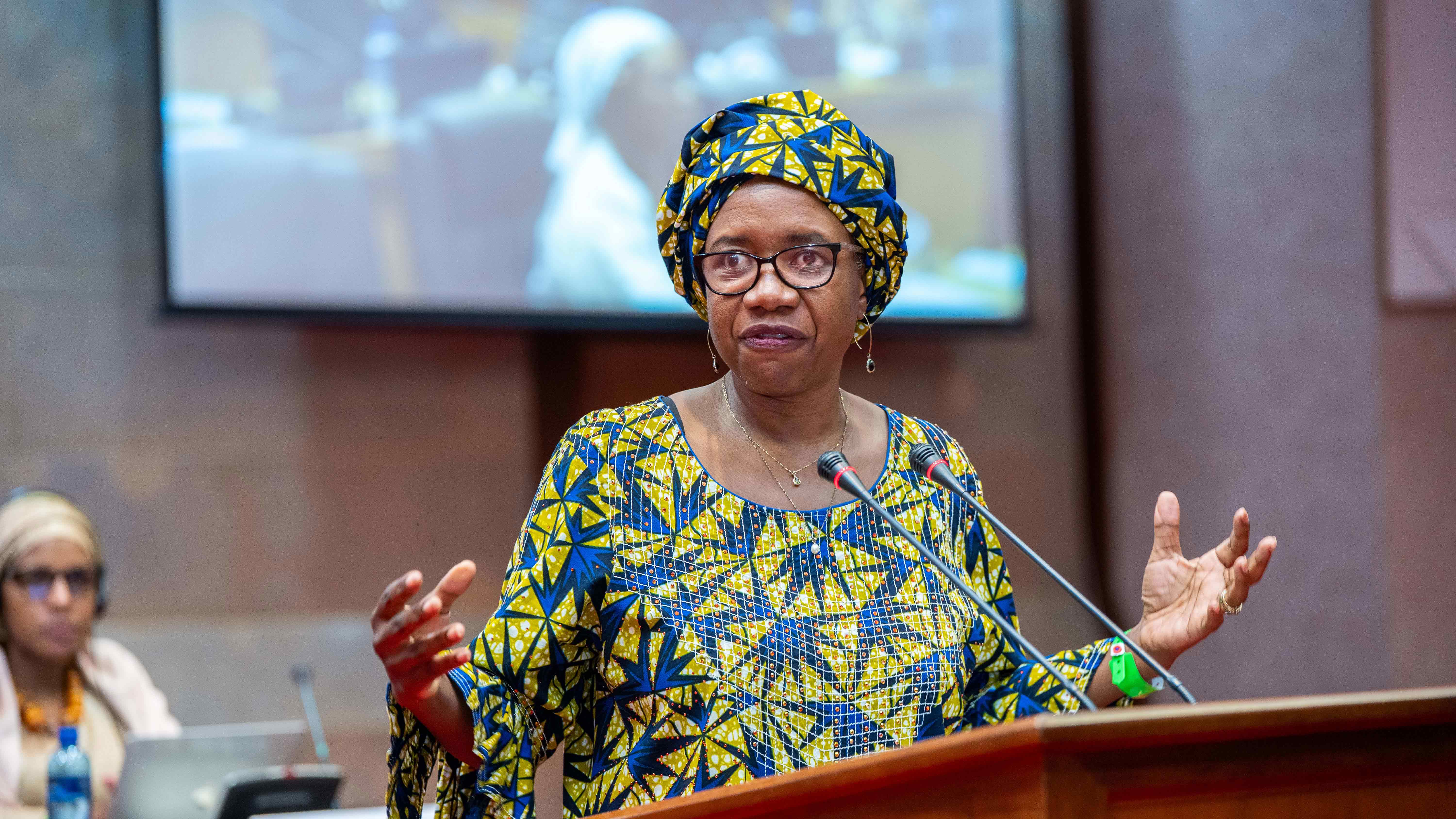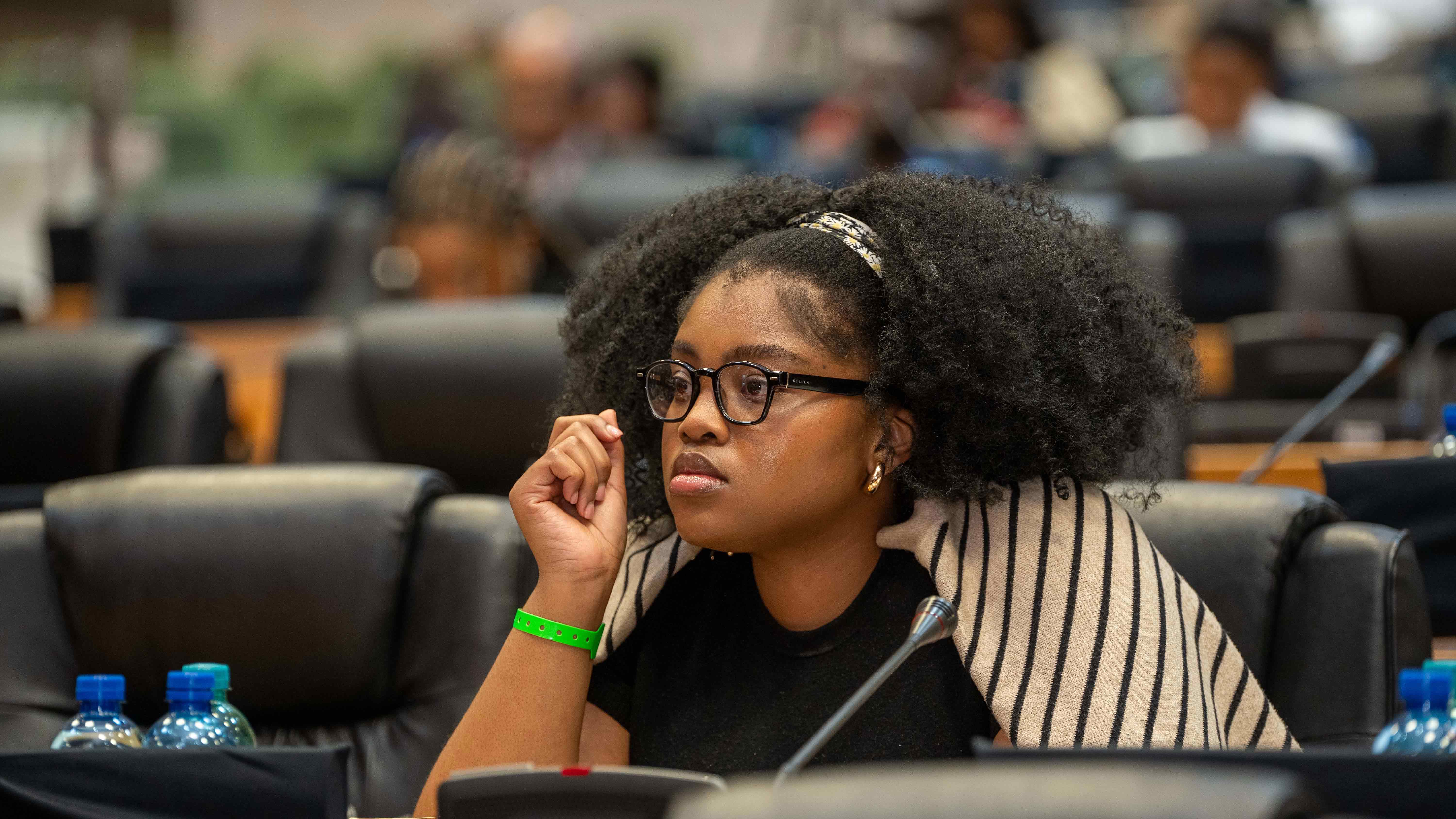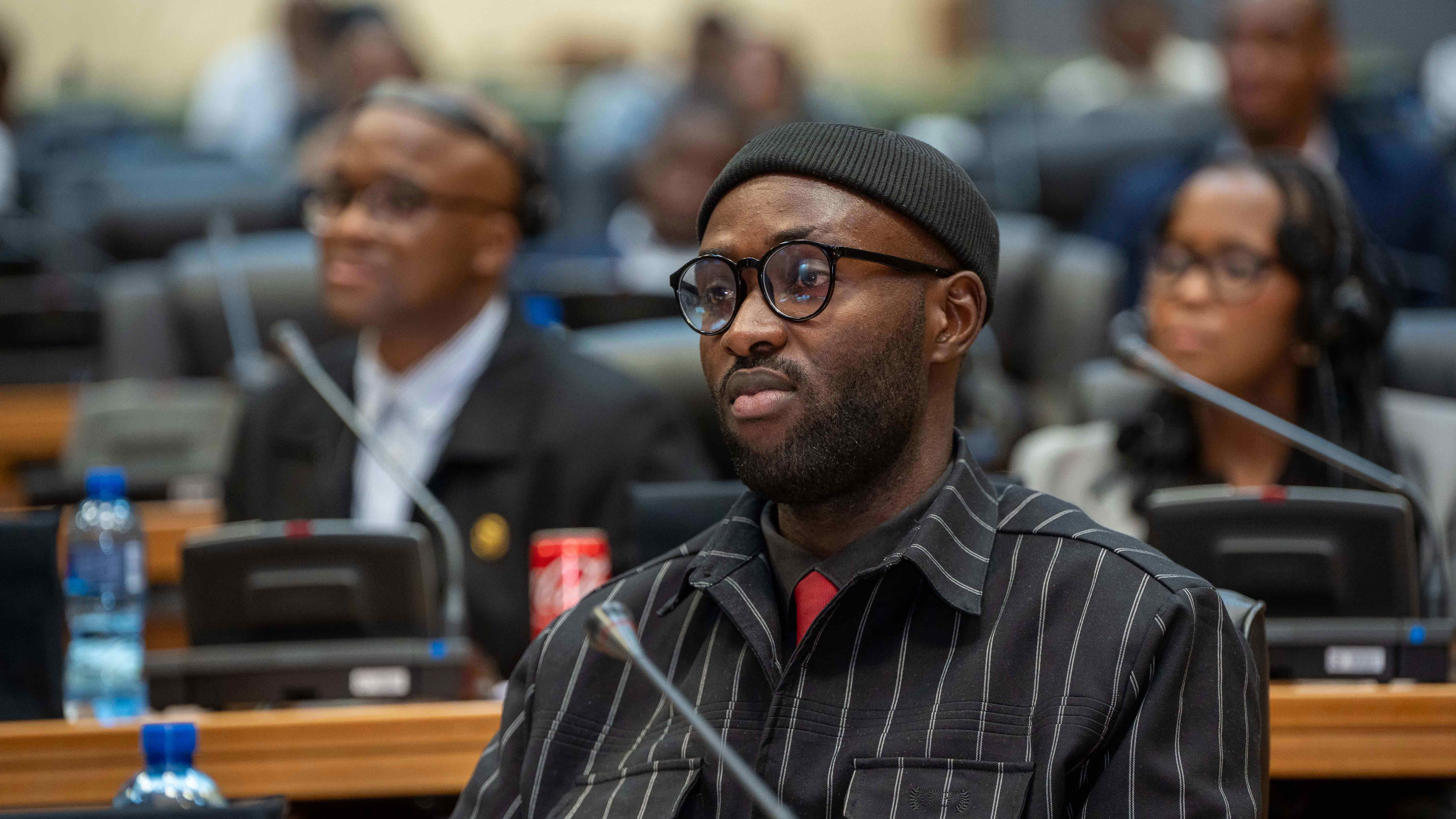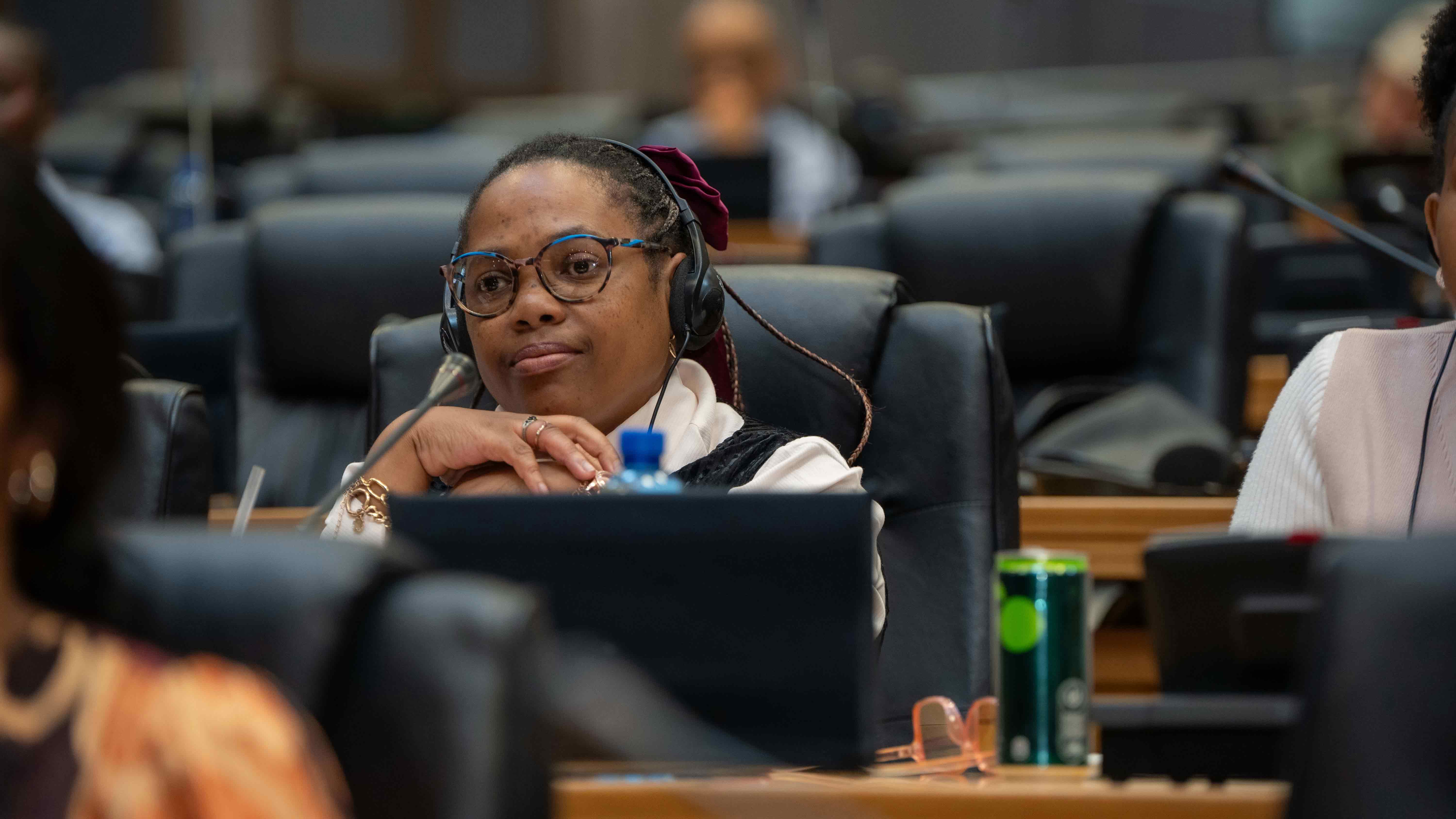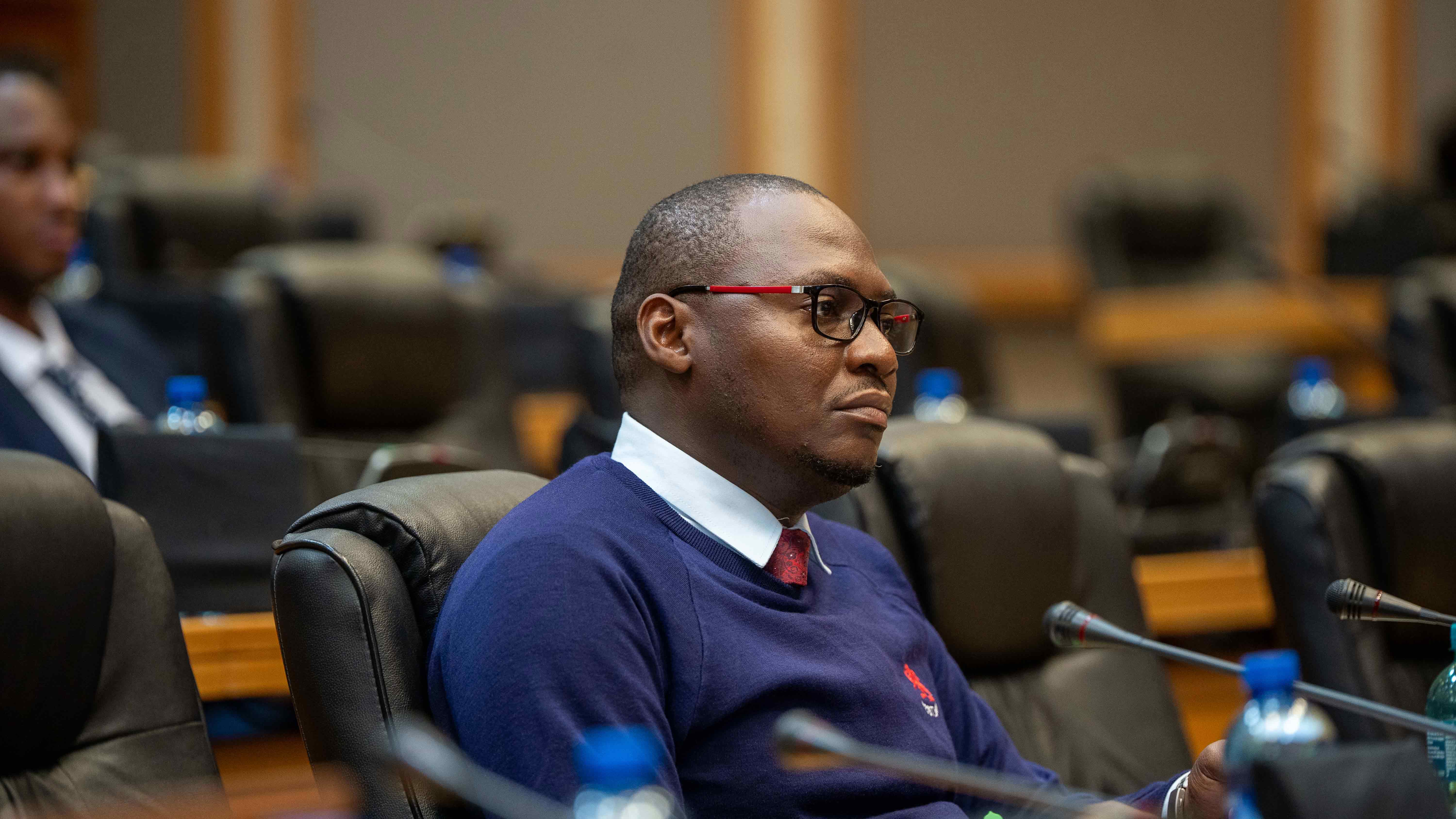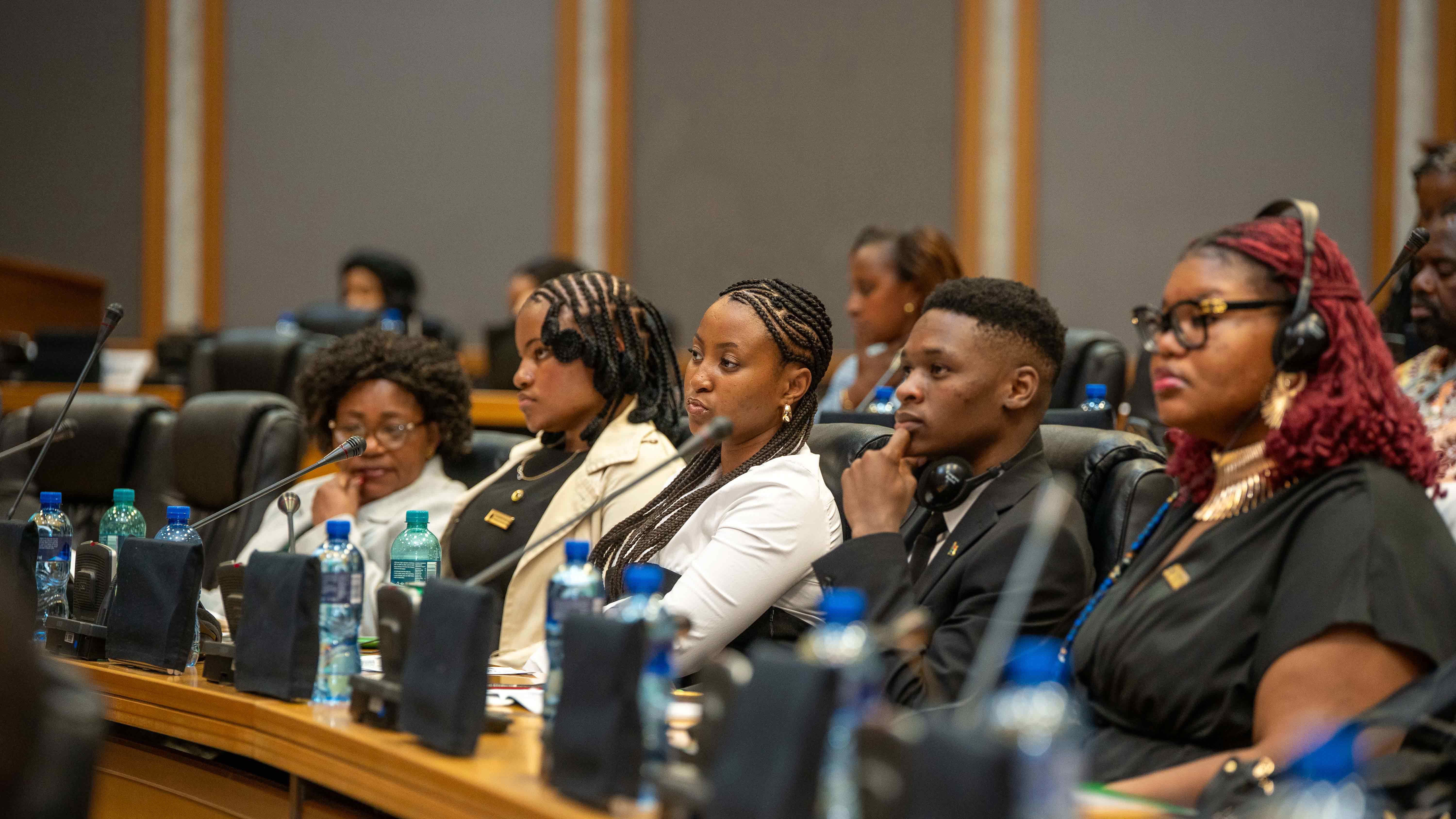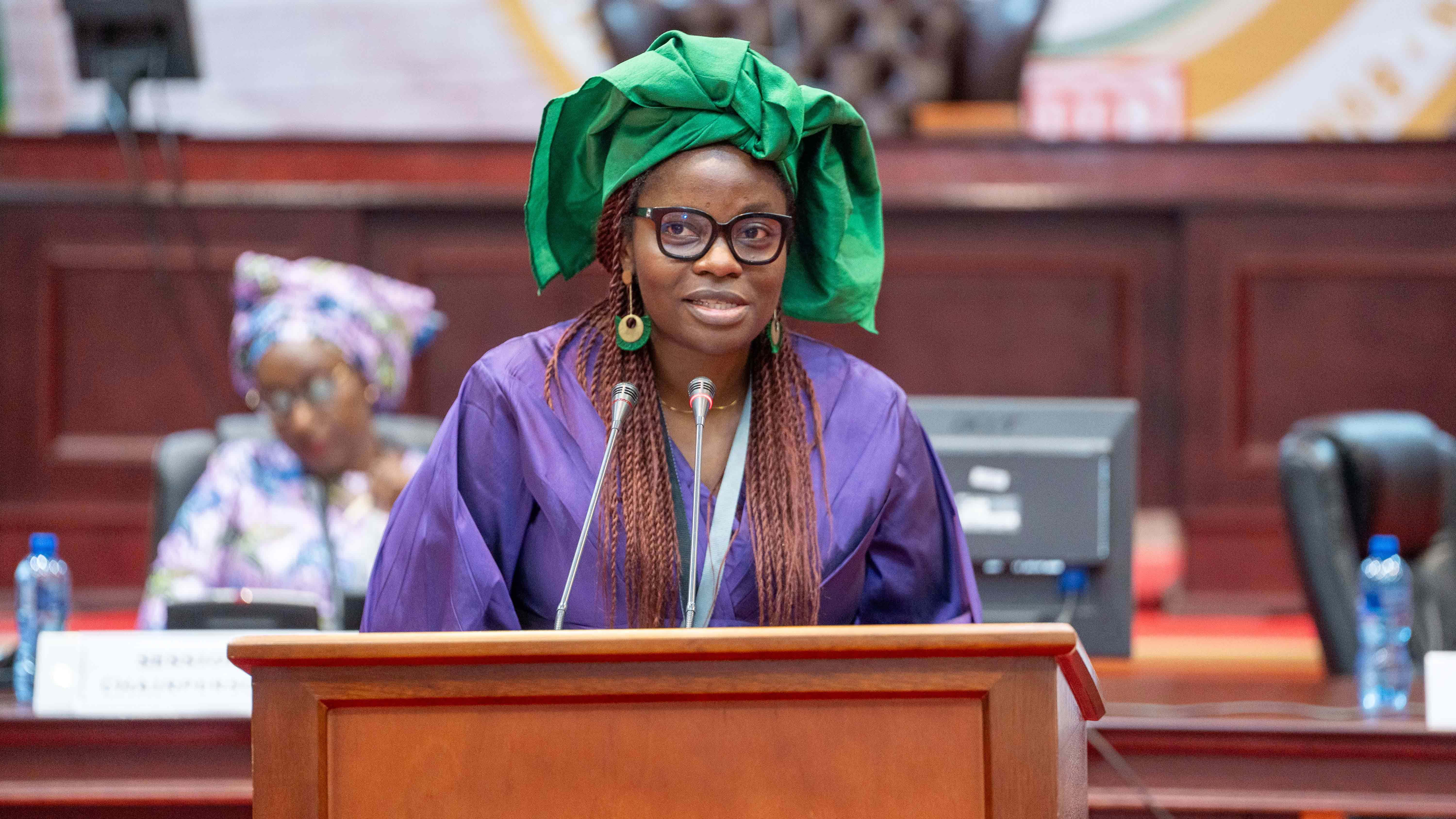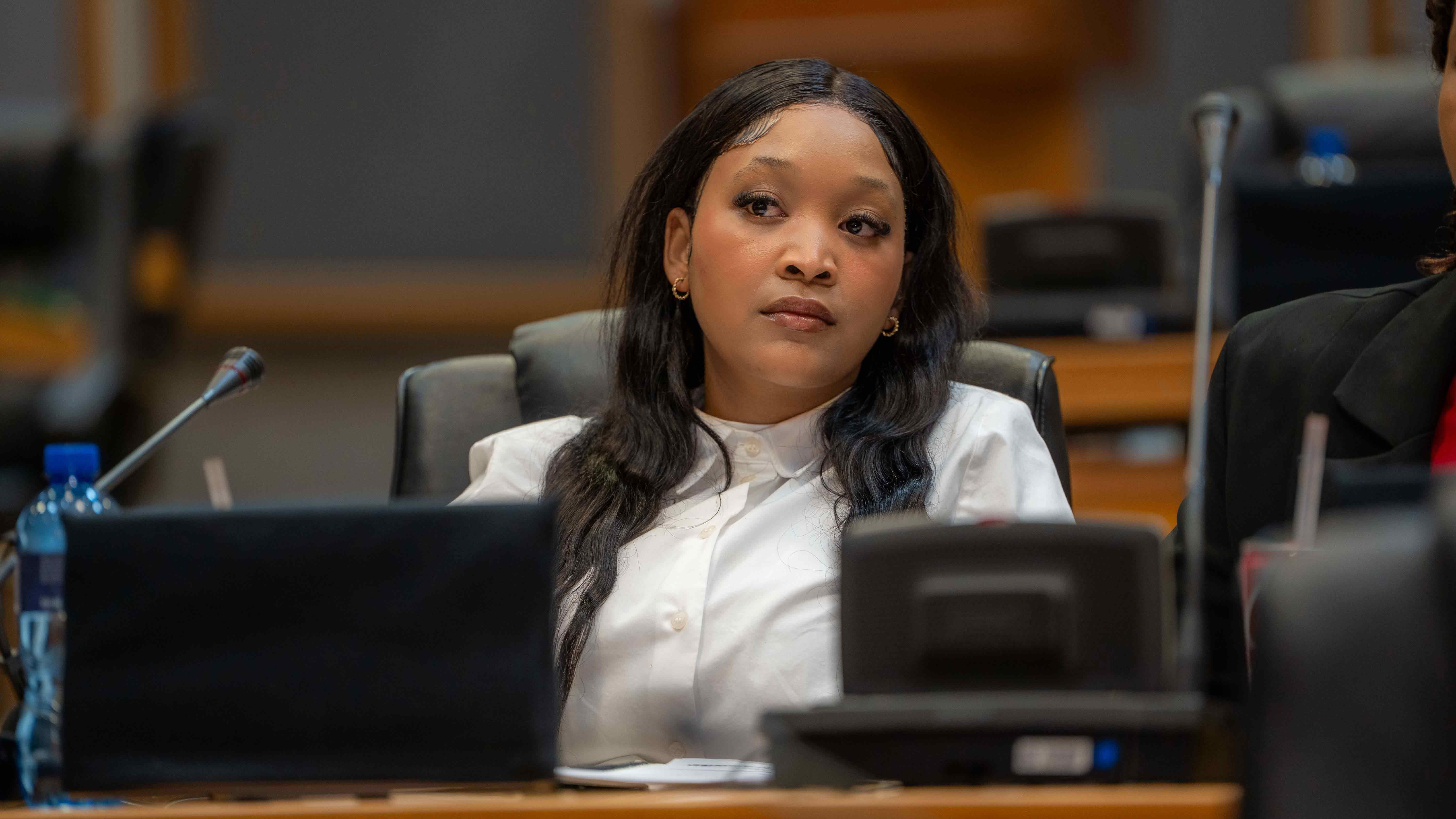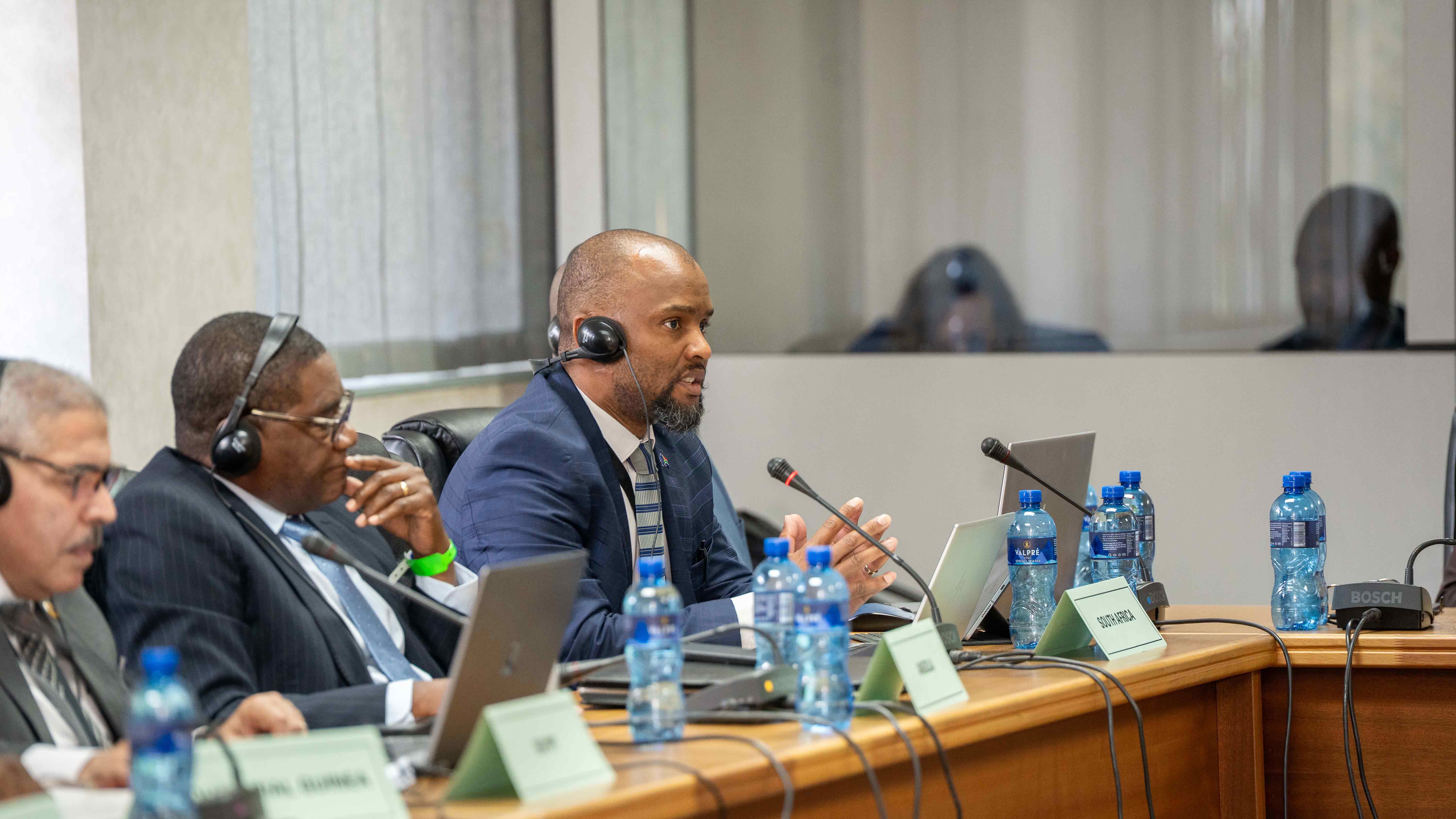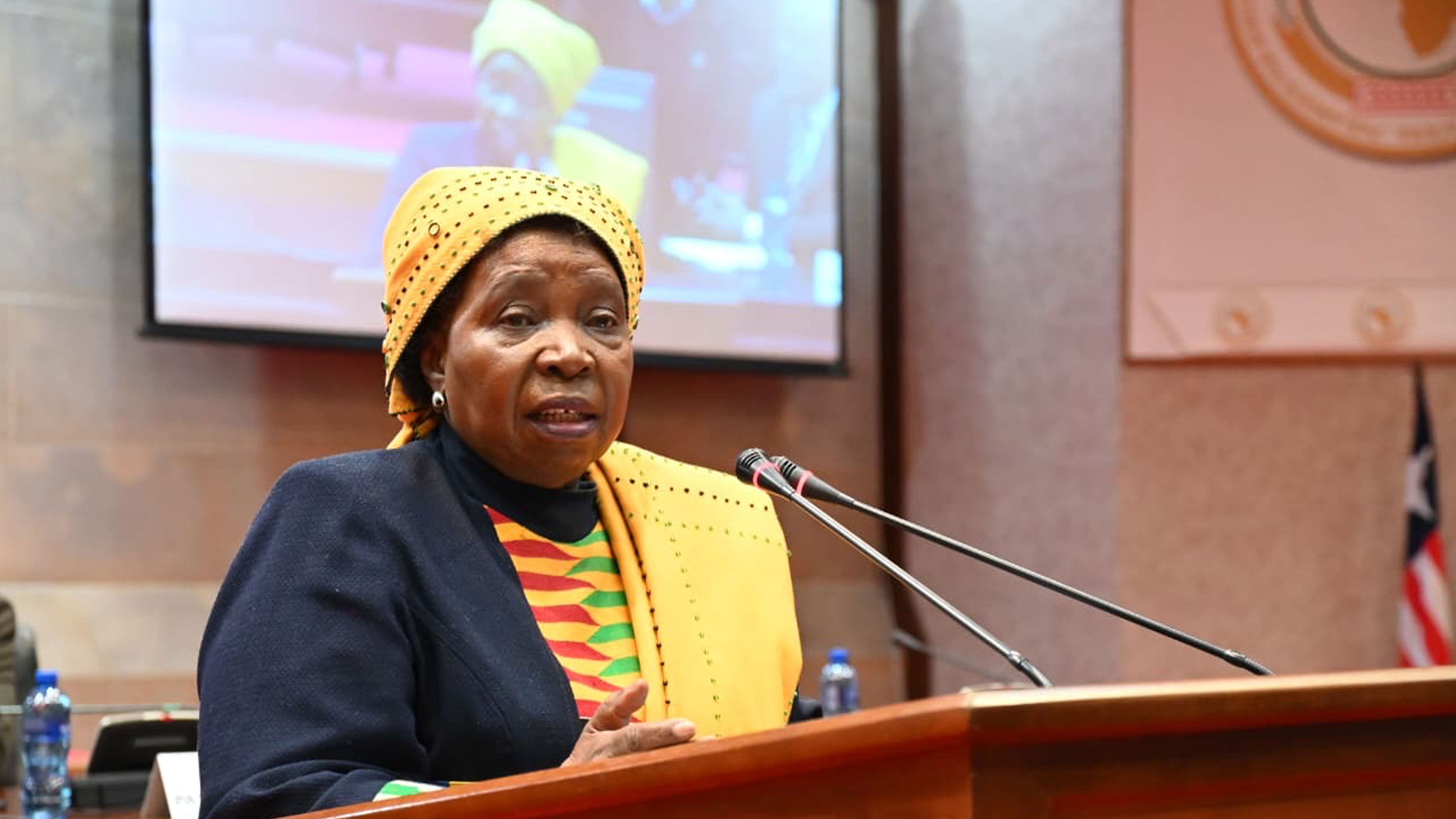On 8 November 2025, the Centre for Human Rights, Law Faculty, University of Pretoria (the Centre) in partnership with Open Society Foundations (OSF) and the Pan-African Parliament (PAP) hosted the third annual civil society parliamentary dialogue, at the Pan-African Parliament Precinct. The dialogue aimed to strengthen parliamentary-civil society collaboration on democracy, human rights, and governance across Africa. This dialogue brought together civil society organisations, academics, university students and legislators from across the continent.
The dialogue’s overarching message was that Africa's renewal depends on justice, unity, and dignity. Opening the dialogue, the Centre’s Bonolo Makgale, reflected on the genesis of the Pan-African Parliament Civil Society Forum which convened the dialogue. She noted that Article 17 of the Malabo Protocol calls on the Pan-African Parliament to create mechanisms for civil society participation. She emphasised that the call for civil society participation in Article 17 is not just a procedural matter, but reflects a deeper understanding that democracy is consolidated not just through institutions, but also through sustained citizen engagement. The President of the PAP, Chief Fortune Charumbira, reaffirmed the PAP as a vital platform for ensuring citizens' voices influence decision-making at the highest level.
The African Union, and the PAP in particular, have long recognised that achieving the goal of African integration requires meaningful engagement with civil society. The Pan-African Parliament Civil Society Forum creates a formal channels for sustained structured and institutionalised dialogue between African citizens and the African Parliament.
Reparation as historical accountability
The keynote address was delivered by former African Union Chairperson Dr Nkosazana Dlamini-Zuma, who unpacked the AU's 2025 theme: 'The Year of Reparations: Justice for Africans and People of African Descent through Reparations'. She traced Africa's pursuit of reparations back to the 1993 Abuja Conference, where it was agreed that the West owed Africa a moral, economic and historical debt. She further reflected on the 2001 World Conference Against Racism, Racial Discrimination, Xenophobia and Related Intolerance in hosted in Durban, which produced the Durban Declaration and Programme of Action, a landmark document that declared slavery, particularly the transatlantic slave trade, a crime against humanity and identified colonialism and apartheid as root causes of enduring racial discrimination and inequality. Responding to the keynote, Sarah Wesonga of Article 19 noted that reparative justice is not only about remembering historical wrongs but also about addressing the structural and political conditions that continue to deny people peace, safety, and dignity today, particularly those who bear the brunt of ongoing injustices-children, women, civilians in conflict zones, and marginalised communities.
"True liberation cannot exist without justice and reparatory action," noted Dr Dlamini-Zuma. She stressed that reparative justice must be gender-responsive and youth-focused in order to transform Pan-Africanism from rhetoric into a lived experience that connects the continent and its diaspora.
Reimagining democracy - from procedure to substance
The urgent need to reimagine African democracy was a dominant theme throughout the dialogue. Discussions were permeated by growing frustration with procedural democracy that fails to improve livelihoods or reflect the will of citizens, and which excludes large swathes of society, particularly youth and women. The dialogue emphasised the need for youth inclusion as a pathway and prerequisite for strengthening democracy, peace and security on the continent. Further, it was noted that democracy must deliver dignity, justice and development, not just elections. The Dialogue reflected on governance deficits, social exclusion and a loss of legitimacy as some of the factors underlying the resurgence of military takeovers across Africa. It also cautioned against normalising so-called 'progressive coups', emphasising the need to address the root causes, including inequality and impunity. Parliaments were urged to resist manipulation, safeguard constitutional order and ensure accountability for executive excesses, with the goal of shifting the focus towards rebuilding public trust through integrity, transparency and effective service delivery.
The Peace, Security, and Democracy Nexus: Lessons from the Sahel and eastern Democratic Republic of Congo
A number of current humanitarian and governance crises were discussed, including the situation in The Sahel, Sudan and Eastern DRC. The acute humanitarian catastrophe, characterised by widespread displacement, hunger and violent extremism was noted as resulting from the collapse of governance and the loss of social legitimacy which have left populations unprotected and voiceless. Children are out of school, women and civilians are caught in the crossfire, and large-scale displacement highlights state fragility. The proliferation of unregulated arms and drones has exacerbated the targeting of civilians and insecurity. Ms Ncube, Executive Director of Crisis Action, emphasised the deteriorating security situation in the Sahel and its devastating impact on civilians, cautioning that militarised responses frequently exacerbate suffering. She emphasised the importance of civil society in peacebuilding and the implementation of early warning systems. Madame Sidibe-Gascon, Présidente de l’Observatoire KISAL, drew attention to the erosion of social cohesion and the weakening of local governance structures, and highlighted the need for sustained community engagement to stabilise affected regions. Sahel should serve as a litmus test for African states to protect their populations. What the Sahel needs is the restoration of human dignity, not foreign intervention.
Discussions on resource governance and regional coordination were dominated by the crisis in the Democratic Republic of Congo. Ambassador Welile Nhlapo noted that the conflict in the DRC can be traced back to the colonial partition and the 1886 Berlin Conference, which commodified African territories. In the intervening period, poor governance and lack of commitment to resolving issues fuelled instability. He noted that the M23 crisis is a symptom of unimplemented agreements and the failure to integrate rebel forces into national structures. The DRC's multiple regional affiliations (SADC, EAC, AU, UN and ECCAS), coupled with the presence of external players and interests, have led to fragmentation and incoherent policies. The absence of deliberate regional (AU) effort, and deprioritisation of the DRC situation in recent SADC meetings was said to reflect a leadership paralysis.
Youth inclusion
Young representatives at the dialogue expressed deep frustration with unresponsive leadership and their exclusion from governance. There was a call to institutionalise youth representation within the PAP and AU structures. Young people must be recognised as agents of change and innovation, rather than being seen as victims or instruments of propaganda. Investing in youth leadership can help to prevent radicalisation and build resilience.
Conclusion
Civil society organisations are pillars of democratic accountability and essential partners of the PAP. They help bridge the gap between citizens and power, promote transparency, and contribute policy expertise. Participants called for institutionalisation of the PAP-CSO engagement frameworks to enable regular consultation.
The full outcome document and resolutions from the Third Pan-African Civil Society Parliamentary dialogue are available at here.
While African democracy faces profound challenges, it also possesses remarkable resources for renewal. What began in 2019 as an effort to fulfil constitutional obligations has evolved into a platform that strengthens the relationship between the Pan-African Parliament and civil society across the continent. . The dialogue reaffirmed a shared commitment to strengthening collaboration between Africa's continental parliament and African citizens.
The Centre extends its gratitude to our partners, participants and members of the PAP, who collectively made 3rd CSO- PAP Dialogue a success.
Media Interview
For more information, please cotact:
Bonolo Makgale
Programme Manager: Democracy and Civic Engagement Unit
Bonolo.Makgale@up.ac.za
Nomusa Nkwanyana
Project Officer: Democracy and Civic Engagement Unit
Nomusa.Nkwanyana@up.ac.za

